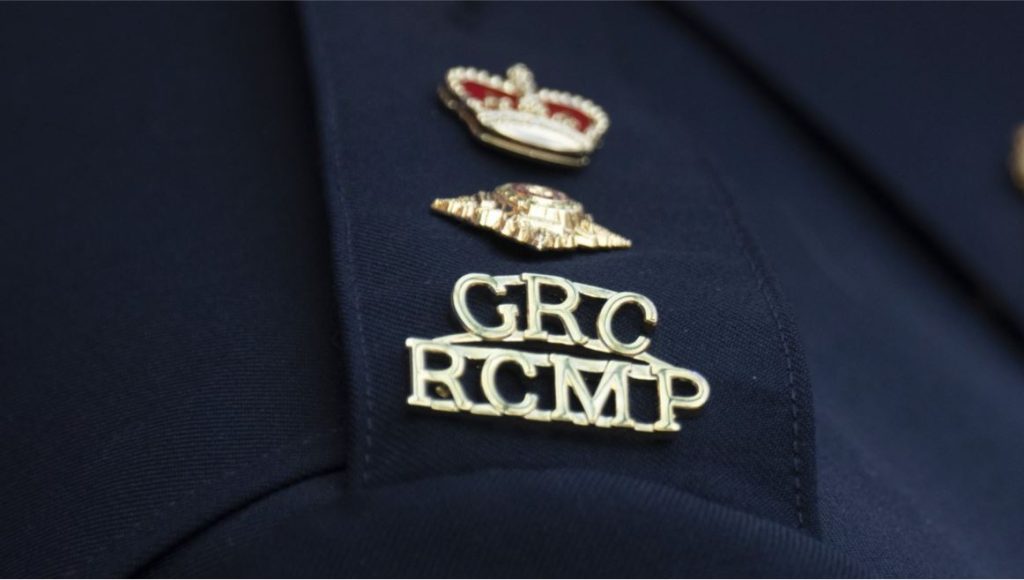‘100% preventable,’ say families calling for change after deadly B.C. tug sinking
Posted Mar 9, 2023 01:03:33 AM.
VANCOUVER — Family members of two men who died when a tugboat sank off British Columbia’s northern coast are pushing for federal government action after the Transportation Safety Board concluded the accident highlighted “major systemic issues in the transportation industry.”
Troy Pearson, the 58-year-old pilot, and 25-year-old crew member Charley Cragg died in the water after the tug Ingenika sank in February 2021. A third crewman made it to the life raft and was rescued hours later.
In a report released Wednesday, the safety board issued four recommendations, including that Transport Canada begin regular inspections of tugs of 15 gross tonnesor less and require risk assessments on the smaller boats.
It also called for improvements to the waiver system required to pilot a tug.
The Pacific Pilot Authority, the Crown corporation that maintains safe pilot service in B.C.’s coastal waters, had implemented a process where some vessels, mostly tugs and barges, could obtain a pilotage waiver, if the operator met certain requirements, the report said.
However, the authority does not verify that the information submitted meets regulatory requirements, and safety board chair Kathy Fox said the pilot didn’t hold the required certificate for competency and should not have been given a waiver.
The safety board is recommending the authority verify eligibility requirements before issuing waivers and implement a process for verifying ongoing compliance.
Cragg’s mother, Genevieve Cragg, said the accident was “100 per cent predictable and 100 per cent preventable.”
“Charley and Troy paid the highest price with their lives to make change happen. These recommendations announced today by the board are critical and cannot afford any further delay,” she said.
Fox said that in its more than 50 years in operation, the Ingenika had never been inspected by regulators.
Currently, Transport Canada does not require inspections of tugs that are under 15 gross tonnes, and while the department has a goal of inspecting three per cent of vessels per year, most will go years without inspections or are never inspected at all, Fox said.
That leaves compliance with the law up to representatives, often the owners of the boats, who may not be aware of the rules.
“And as the probability of an inspection and enforcement by Transport Canada is low, authorized representatives may not be motivated to ensure compliance,” she said.
Fox said the board has investigated six occurrences involving similar-sized tugs since 2015 and their systemic safety issues have been on its safety watchlist for 13 years.
Clifford Harvey, the safety board’s director of marine investigations, said the probe into the Ingenika sinking determined there were “inconsistencies” in the way safety drills were conducted and they weren’t “done in accordance with regulations.”
“While they may have been shown the location of life-saving equipment, there wasn’t a drill performed to practise donning the life-saving equipment,” he said.
The men who died had only partially put on their immersion suits, allowing cold water in, causing hypothermia and their drownings, the report says.
The report also says the registration for the Ingenika’s emergency radio beacon was not up-to-date, which meant rescuers were not able to immediately contact the tug’s owner.
It says the tug and barge departed in adverse weather conditions unsuitable for the operation.
Judy Carlick-Pearson, Troy Pearson’s widow, said there’s plenty of blame to go around but the families have to continue to fight for change.
“(We) fight for the survivors that are out there that are risking their lives to go on the waters, fight for change. Make sure these recommendations are put in place that protect your loved ones,” she said.
Fox said as of September 2022 there were 1,343 tugs of 15 gross tonnage or less registered in Canada, 1,035 of them registered in British Columbia.
Transportation Canada introduced a small vessel compliance program for tugs in 2022 to help owners understand their regulatory requirements, but the program is voluntary.
Cragg said any response from the federal government that makes action voluntary is not enough.
Transport Minister Omar Alghabra said in a statement Wednesday that his heart goes out to the families, and he is “committed to working with partners to further enhance Canada’s marine safety system.”
Alghabra said he would be providing a response to the safety board within 90 days.
In a separate statement, Pacific Pilotage Authority CEO Julie Gascon said it will work closely with Transport Canada to review the recommendations and “implement corrective actions where appropriate.”
“It is too early to provide the full details on corrective actions; however, some immediate steps, in consultation with Transport Canada, will be taken to strengthen the pilotage waiver process with regards to vessel registration, vessel equipment, any outstanding deficiencies and certificate of competencies as it pertains to safe manning documents for each vessel listed on the pilotage waiver,” she said.
Jason Woods, president of International Longshore and Warehouse Union local that represents tug workers on the West Coast, said that while trains, planes or commercial vehicles are all inspected by provincial or federal regulators, marine vessels are “the Wild West.”
“Basic due diligence would have stopped this accident from happening. They say that safety is a Swiss cheese model and holes have to line up for an accident to happen but unfortunately, in these circumstances, the holes were so big, the risks were so known, but nothing was accounted for,” he said.
He said Transport Canada hasn’t had the resources to fulfil its mandate “for generations” with only 300 marine inspectors across the country.
“They really need a dedicated small vessel inspection team. You’ve got over 1,000 under-15-gross-tonne vessels here on the West Coast,” he said.
“Even under that regime, with 300 inspectors doing it, it would take you years.”
Charges under the Workers Compensation Act were laid last month against the tug company, Wainwright Marine Services, and one of its senior officials, alleging violations of occupational health and safety regulations.
This report by The Canadian Press was first published March 8, 2023.
Ashley Joannou, The Canadian Press








